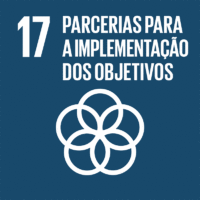Ciência_Iscte
Publicações
Descrição Detalhada da Publicação
Peace education for the Anthropocene? the contribution of regenerative ecology and the ecovillages movement
Título Revista
Journal of Peace Education
Ano (publicação definitiva)
2020
Língua
Inglês
País
Reino Unido
Mais Informação
Web of Science®
Scopus
Google Scholar
Esta publicação não está indexada no Overton
Abstract/Resumo
The security risks posed by the Anthropocene requires peace education strategies aimed at developing the skills necessary for the emergence of regenerative social forms, based on sustainable synergies between humans and nature. This article explores how community-building and regenerative ecology frameworks developed in ecovillages can contribute to that goal, through the case study analysis of the peace education initiative carried out in Israel and the West Bank by Tamera – Healing Biotope I, an ecovillage located in southern Portugal. The findings illustrate the difficulty of creating regenerative social forms through the reproduction of whole system ideal models for sustainable human settlements, due to the vulner- ability of intentional communities to the internal reproduction of ethnopolitical loyalties and conflicts. They also illustrate how a combination of local embeddedness and transnational connections contribute to the diffusion of social innovations produced in ecovillages. However, local ethnopolitical organi- zations and movements tend to promote resistance to the adoption of externally produced frameworks for the develop- ment of competences of collaborative sociability and non- violent conflict resolution. The article concludes with an appeal to a transdisciplinary collaboration among scholars, practi- tioners and public institutions in the development of synergis- tic models of peace education that are multipliable, but context-sensitive.
Agradecimentos/Acknowledgements
--
Palavras-chave
Ecovillages,Regenerative ecology,Non-formal education,Prefigurative politics,Middle East
Classificação Fields of Science and Technology
- Sociologia - Ciências Sociais
Registos de financiamentos
| Referência de financiamento | Entidade Financiadora |
|---|---|
| SFRH/BPD/94495/2013 | Fundação para a Ciência e a Tecnologia |
| UID/CPO/03122/2013 | Fundação para a Ciência e a Tecnologia |
Contribuições para os Objetivos do Desenvolvimento Sustentável das Nações Unidas
Com o objetivo de aumentar a investigação direcionada para o cumprimento dos Objetivos do Desenvolvimento Sustentável para 2030 das Nações Unidas, é disponibilizada no Ciência_Iscte a possibilidade de associação, quando aplicável, dos artigos científicos aos Objetivos do Desenvolvimento Sustentável. Estes são os Objetivos do Desenvolvimento Sustentável identificados pelo(s) autor(es) para esta publicação. Para uma informação detalhada dos Objetivos do Desenvolvimento Sustentável, clique aqui.

 English
English




